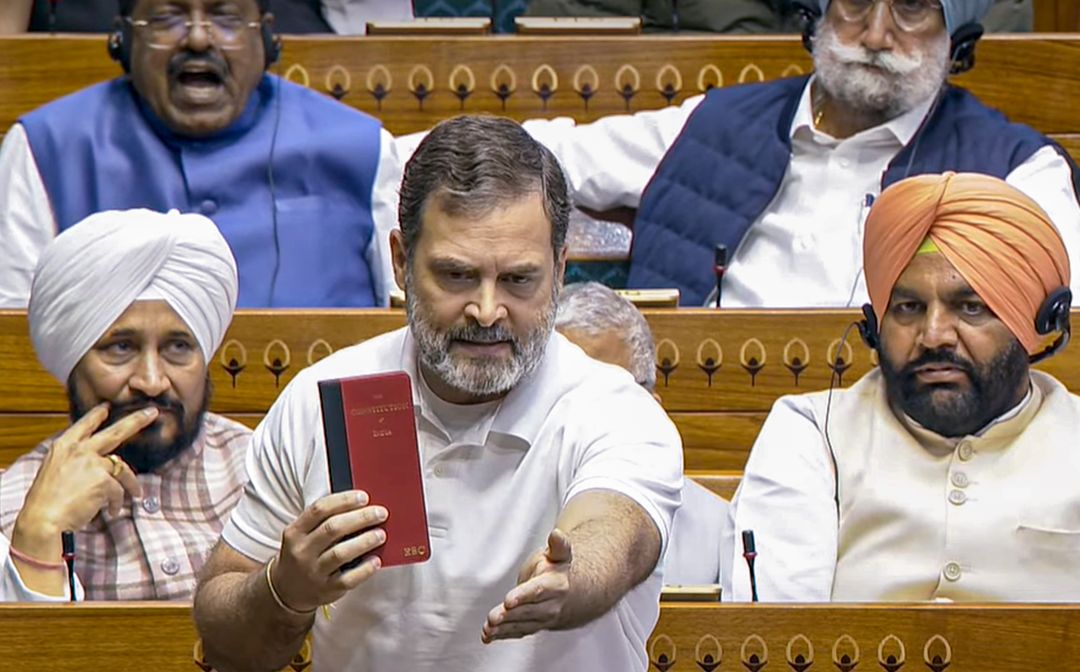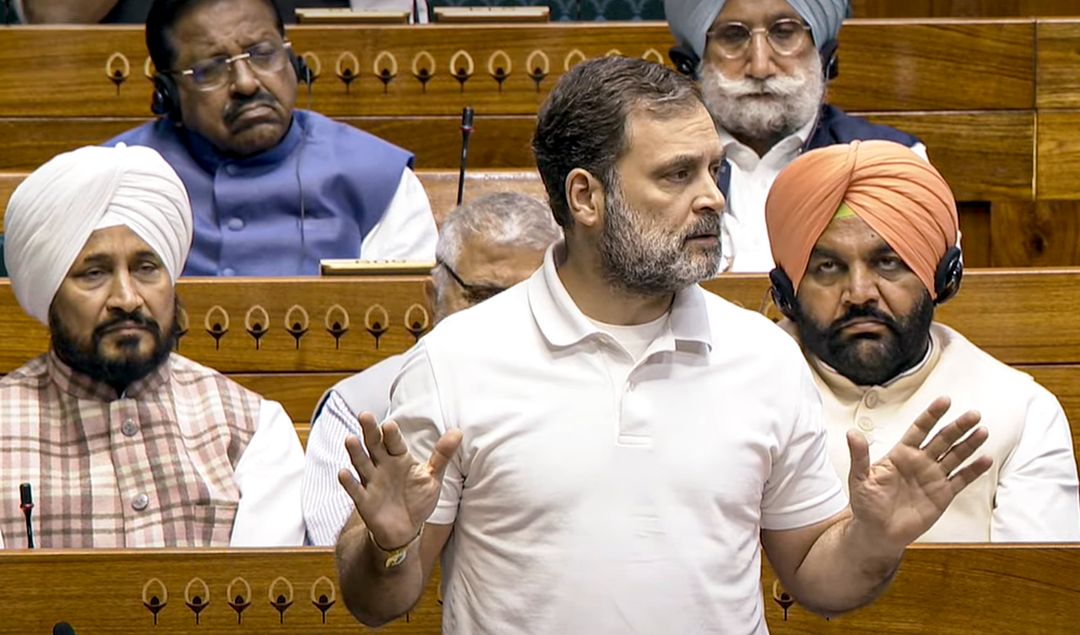
New Delhi, Feb 3 (PTI) – In a strong critique of Prime Minister Narendra Modi’s ‘Make in India’ initiative, Congress leader and Leader of the Opposition Rahul Gandhi on Monday claimed that the program had failed, leading to stagnation in the country’s manufacturing sector and rising unemployment. Presenting an alternative vision, he advocated for increased participation of Dalits, tribals, and OBCs in governance and economic growth, while also stressing the need to secure India’s position in the global energy and mobility revolution, preventing it from being dominated by China.
While acknowledging that successive governments—both the Congress-led UPA and the BJP-led NDA—have struggled to provide concrete solutions to India’s unemployment crisis, Gandhi insisted that a new direction was required to address the pressing economic challenges.
Critique of Modi’s Economic Policies
Speaking on the Motion of Thanks on the President’s address, Gandhi outlined what an alternative presidential address under an INDIA bloc government would emphasize. He criticized India's diplomatic efforts, claiming that under Modi’s leadership, India's foreign policy lacked assertiveness."When we talk to the US, we wouldn't send our foreign minister multiple times just to get our Prime Minister invited to a coronation," he remarked, in an apparent reference to External Affairs Minister S. Jaishankar’s visits to the US before Donald Trump’s inauguration. His comments triggered protests from the treasury benches, with Union Minister Kiren Rijiju dismissing his remarks as "unsubstantiated allegations."
Gandhi argued that India’s economic future depends on tackling unemployment effectively. He noted that the country's economic growth, while once rapid, has slowed, without addressing the urgent job crisis.
"'Make in India' was a good idea, but it has pretty much failed," he declared, pointing to data that showed manufacturing’s share of GDP declined from 15.3% in 2014 to 12.6%—the lowest in 60 years. "I am not even blaming the Prime Minister because it would not be fair to say he didn’t try. But it is clear that he failed," he added, with Modi present in the House during his speech.
China, AI, and India’s Manufacturing Deficit
Highlighting China’s dominance in the global industrial system, Gandhi said that India had effectively handed over its production capabilities to the Chinese. "The reason China is inside this country is because ‘Make in India’ has failed and India is refusing to produce," he warned.He called for an urgent focus on the ongoing technological revolution in energy and mobility, stressing that India must not fall behind in adopting and developing key technologies such as electric motors, batteries, optics, and artificial intelligence (AI). Drawing a parallel to India's success in software development during the IT revolution, Gandhi urged the government to take proactive steps in fostering innovation.
"AI on its own is meaningless—it operates on data. In India, consumer data is largely owned by US companies like Google, Facebook, and Instagram," he said, pointing to the need for India to secure its technological sovereignty.
Caste Census and Inclusive Growth
Gandhi also raised concerns about social inequality, citing a caste census conducted in Telangana that revealed nearly 90% of the state’s population comprises Dalits, Adivasis, Backward Classes, or minorities. He argued that a similar nationwide caste census is necessary to ensure fair representation in governance and economic opportunities."The OBC population in India is at least 50%. We need to ensure that they, along with Dalits and Adivasis, have equal participation in governance, institutions, and wealth distribution," he emphasized.
Vision for an INDIA Bloc Government
Outlining an alternative economic model, Gandhi said an INDIA government would realign education, engage experts, provide wider financial access, and align trade and foreign policies to boost production. He asserted that India's dependence on Chinese imports for critical technologies like motors and batteries posed a national security risk."In today’s world, wars are not fought between armies, but between industrial systems. If we continue relying on imports, we weaken our strategic position," he said.
Later, in a post on X (formerly Twitter), Gandhi reiterated his stance, stating that India's future depends on "production and participation"—boosting industrial output while ensuring economic inclusion.
"As the world stands on the brink of a technological and economic revolution, India needs a new vision for growth. Jobs come from production, which ‘Make in India’ has failed to revive. But we have an opportunity with the revolution in energy and mobility," he posted.
Gandhi insisted that with the right policies, India could bridge its technological gap with China and emerge as a global leader in the industrial revolution. He concluded that only a strategy combining industrial growth with social inclusivity could ensure a prosperous future for India’s youth.
Last updated by a enewsx:

